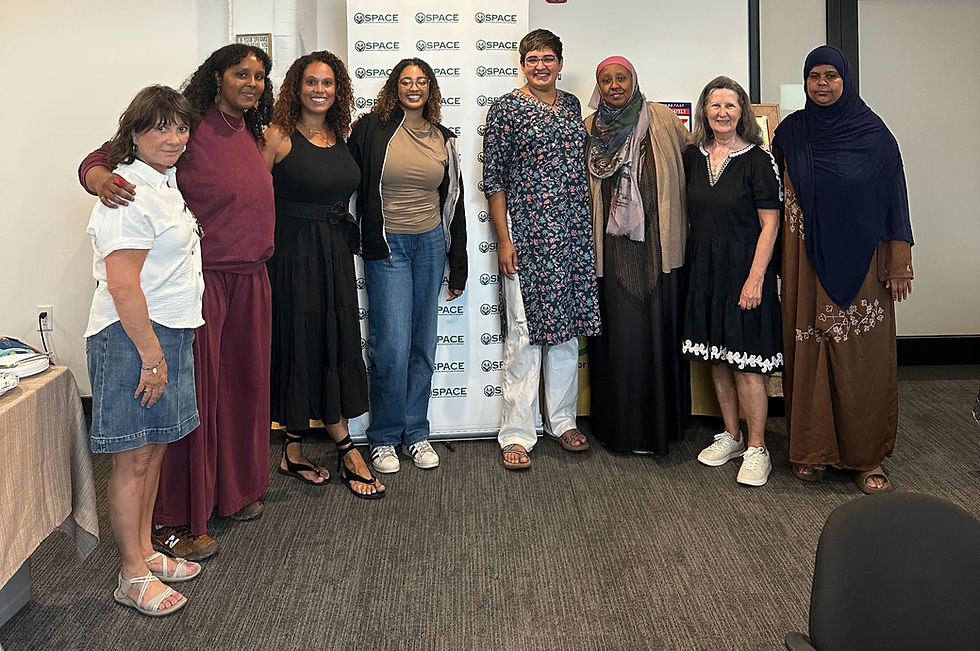Small House: Building Pathways out of Young Adult Homelessness
- aishadbwoodruff
- Dec 22, 2022
- 2 min read

Asjah Monroe (she/her) has always combined facets of youth work, housing support, and education in her career. But while working in a shelter for unhoused young adults during the start of the COVID-19 pandemic, something changed.
“When things shut down, we were all in our houses. We were locked in, but they were locked out. And to me, that was the cruelest irony. They just had nowhere to go. They were outside all day,” Asjah said. “Seeing it in technicolor in that way created a sense of urgency in me.”
So in March of 2021, Asjah founded Small House, an organization helping transition-aged youth, ages 18-24, find a pathway out of homelessness. Small House’s model uses a combination of coaching, life skills, and housing support, a triad she stressed is essential.
Asjah’s own experience of sudden homelessness at age 18 also fuels her approach.
When she searched for services then, she found shelters that were full or operating under systems that didn’t account for her situation. Often, youth have to prove that they’re homeless (which can be difficult without a paper trail), or are considered not vulnerable enough to qualify. Others require long-term commitments and a case manager’s involvement, entering the individual into the system. There wasn’t a place for young adults who just needed a stable, safe place to stay.
Asjah found an extended family member to move in with and continued her collegiate education. Her work today is driven by the reality that many transition-aged youth don’t have that option.
Small House is in its early stages. Most funders want to see a proven track record and previous funding before they commit, which for over a year, Small House didn’t have. However, with a seed-funding grant from Boston Women’s Fund, this year, Small House designed, developed, and launched its life skills and coaching pilot program — 10 sessions teaching, what Asjah calls, “the mechanics of adulting.” One session features cooking lessons, followed by a competition cook-off. Others cover anxiety and interpersonal relationships, and all are supplemented with life coaching and a guide on managing finances.
Asjah sees the cost of housing as a prominent barrier. Small House’s next big goal is to offer a place where youth can live affordably and independently, but in community and with support, until they’re prepared to move on.
“I would challenge everyone to take a moment and think of their favorite niece or young person that they think so highly of and understand that those are the kinds of people that we’re serving that are without somewhere to live,” Asjah said. “They are not any different. They have people who love them in that same way.”
Learn more and support Small House's work at www.smallhouseinc.org.


